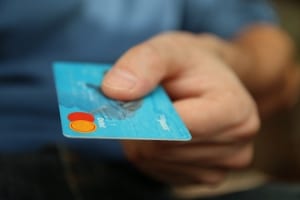10 Tips to Help You Avoid a Credit Card Fraud in Future

Fortunately, it is possible to avoid credit card frauds and safeguard your credit card information from cybercriminals. Everyone must follow proactive measures to safeguard their credit card information and prevent cybercriminals from making payments through stolen cards. On that note, let’s check out the best tips for safeguarding credit card information from attackers and criminals.
1. Do not share credit card information
Though it is a bit obvious, you must not share the credit card information with anyone including customer service representatives of the bank or any financial institution. Also, be careful of phishing scams and do not call on phone numbers listed in a random email or share your credit card number with anyone posing as the representative of your credit card supplier. Last but more important, avoid sharing your card details with relatives or friends as well unless you are sure they are going to protect the card details as well as you protect it.
2. Beware of credit card skimmers
A card skimmer is placed invincibly on top of or inside the card slot. These skimmers allow your card to be accessed by the ATM while stealing your card information. This happens in a discreet manner so victims do not notice that something happened until they look at their bank statements later. Avoid this mishap by carefully looking before using your card in any machine: take good notice of any holes, differences in appearance, or something unusual on the PIN pad. Also, look out for any suspicious devices like cameras around the machine. Once you are thoroughly assured of safety, then only use your card.
3. Secure your passwords and PINs
Do not put consecutive numbers, your name, or birth date as passwords, which can easily be guessed by anyone. Also, refrain from saving your passwords online including on password managers (it is hard to trust them). Use a combination of uppercase and lowercase characters with numbers as well as special characters to make it more secure and strong. Never use the same password for different accounts and avoid sharing it with anyone in any communicative way.
4. Protect your physical credit card
Keep your credit cards safe in public places: carry your cards separately from your wallet and be mindful of pick-pocketers as well. It can minimize your losses if someone steals your wallet or purse. Also, make sure you only carry the required cards. Thieves even tend to take pictures of the card so do not expose or keep it in open places. And destroy the unwanted cards as told below.
5. Always shred your payments data
Do not leave your card receipts or statements around your home or office: shred everything that you no longer need before throwing it all out. When it expires, be cautious with sensitive details on the card: scratch off all such information, then shred it away to prevent any kind of duplication or identity theft.
6. Be cautious with credit cards online
Do not do any transactions with sellers or on websites you do not trust. If an online transaction has to be done on an unknown website, creating a new virtual card with low value is a safer option. Many of the card issuing companies will let you create virtual cards from your credit card portal for a short period of time. Also, avoid sharing details online and stay aware of online shopping scams.
7. Report your lost or stolen credit card
As soon as you report your missing card, your credit card issuer can cancel or lock it temporarily, so as to avoid any unauthorized or bogus charges. This way, you will not be held responsible for any fraudulent charges on your account. That is why it is very important that you report your lost or stolen card as soon as you find the lost credit card, else you may have to pay for bogus charges.
8. Secure your digital devices
Keep anti-virus software updated and run security scans on a regular basis on all digital devices. Always proceed with any transaction only on a secure connection — look for HTTPS or lock icon in the browser’s address bar. Also, never click on any link in an email or on the web until you trust the sender or website.
9. Signature is very important
Always sign the back of your card as it provides double protection from any fraud during a transaction and acts as an additional verification for the same. Some retailers or card issuers also ask for signatures on a credit card for any high-value transaction. Of course, it hardly protects against online fraud.
10. Look for unauthorized transactions
Keep in mind to review and analyze all your credit card statements on time. Never skip going through all your bank statements for fraudulent transactions. If you find anything suspicious regarding any payment, immediately contact your credit card customer service and report the fraudulent transaction asap.
By being more aware and careful, you can avoid any fraudulent charges on your card, otherwise, you may have to pay for bogus charges. With a little extra effort and necessary precautions, everyone can protect themselves from fraud.












Leave a Reply
Want to join the discussion?Feel free to contribute!